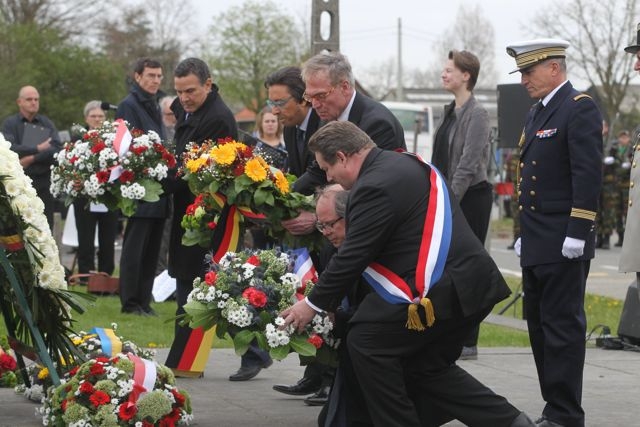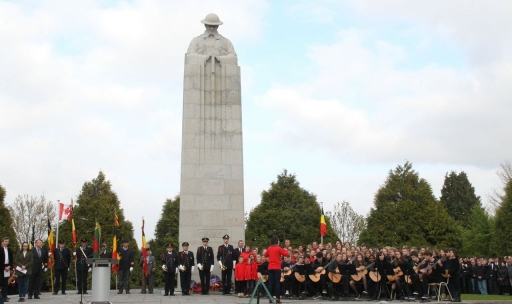The first use of deadly chemicals in war was remembered at ceremonies in Belgium on April 22nd 2015 marking the centenary of the start of the Second Battle of Ypres.
On a spring afternoon in 1915, German troops released clouds of chlorine gas from canisters with the aim of trying to break the Allied defences around the Flemish town.
100 years later, representatives from Germany, Britain, France, Canada and other Commonwealth countries joined King Philippe of Belgium in tributes on the former battlefields.
The anniversary was also used as a reminder of the continuing threat from chemical weapons in the 21st century.
Geert Bourgeois, Minister-President of Flanders, said in a statement: “The 22nd of April 1915 saw the first use of weapons of mass destruction in the history of mankind.”
And he warned: “One hundred years after these gruesome events, similar weapons are still being deployed on the battlefield. Just recently, chemical weapons were used in the Syrian civil war, killing large numbers of citizens.”

Germany’s Ambassador to Belgium, Dr Eckhart Cuntz, and his French counterpart, Bernard Valero, lay wreaths at the Kruis der Verzoening – Cross of Reconciliation – in Steenstraete near Ypres (Photo: Stad Ieper/Tijl Capoen)
French colonial and territorial troops bore the brunt of the initial chorine gas attack, followed by Canadian forces two days later, on April 24th 1915.
The Canadians, in their first major battle in Europe, fought to close a six-kilometre gap (four miles) which had opened up as the Allied trenches were enveloped in toxic fumes.
The Canadian Forces Memorial at St-Juliaan, known as the ‘Brooding Soldier,’ was among the settings for yesterday’s remembrance, which culminated in the Last Post and a wreath laying ceremony beneath the arches of the Menin Gate.
Canada’s Minister of Veterans Affairs, Erin O’Toole, said the Second Battle of Ypres marked a ‘pivotal moment’ in Canadian military history.
“More than 2,000 Canadians gave their lives and 4,000 were wounded during the first four days of a battle that came to symbolize the shocking loss of life—the terrible cost—of the Great War on a young nation,” Mr O’Toole said in a joint centennial statement with Defence Minister, Jason Kenney.
“Treating the wounded and dying at Ypres inspired Canadian physician Lieutenant-Colonel John McCrae to pen the poem In Flanders Fields which, to this day, urges us to remember this sacrifice and hold the torch of remembrance high.”
Sources: Flanders Government/Canadian Government
Images courtesy of Stad Ieper/Tijl Capoen
Posted by: Peter Alhadeff, Centenary News
